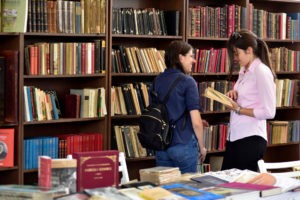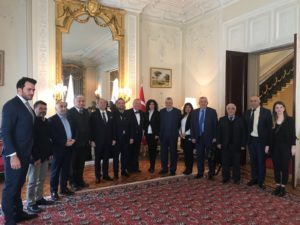
Strengthening the Internal Market
Project is comprised of six components, as follows: Component 1: Improving the strategic, legislative and institutional framework in area of Free Movement of Goods Component 2: Improving the strategic, legislative and institutional framework in area of Free Movement of Services. Component 3: Improving the legislative alignment with the

Increasing Attractiveness, Inclusiveness and Relevance of VET and Adult Education
The overall objective is to improve skill matches of youth and adults in line with labour market needs by increasing access to quality vocational education, training and adult education. The project supports the Ministry of Education and Science of the Republic of Nort Macedonia and related national educational

Technical Assistance for Facilitating Access of Disadvantaged Higher Education Students to the Labour Market
Research indicated that disadvantaged people, especially poor students, lack in participation in the labour market. Consequently, the purpose of the project was to increase the employability of disadvantaged people, facilitate their access to the labour market, and increase their access to public employment services. Helping disadvantaged people gain

Improvement of Legislation, Control and Awareness in Food Safety, Animal Health and Welfare in Ukraine
The project aims to support the implementation of the Association Agreement’s provisions between the EU and Ukraine concerning food safety, animal health, and welfare.

Technical Assistance for Improving the Quality of Public Employment Services
Quality of public employment services depends on the methods of attempting to attract and retain more people in employment. Thus, the operation aimed to create a capacity building and institutional development by enhancing the capacities of the Beneficiary and stakeholders to improve the public employment services that are

Technical Assistance for Establishment of Rize Tea Research and Application Centre
Rize has the best reserves of tea in Turkey, however, the SMEs in the Tea region is not qualified enough to compete. Hence, the general purpose of the project was to increase the competitiveness of the tea sector concentrated in Rize and its surroundings. More specifically, it wanted

